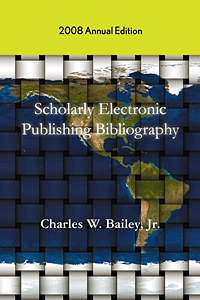"Scholarly publishing and libraries are both in tremendous upheaval as a result of major technological change," said Paul N. Courant, dean of libraries, who noted the new post has been created to oversee the library's growing suite of publishing and scholarly communications initiatives.
"We need leaders with the vision and insight to help us thrive in this new environment, and find new ways to support the academy's mission of communicating its discoveries and ideas," Courant said. "Maria Bonn is the right person to play this new and exciting role on behalf of Michigan and the academy more broadly."
For the last 10 years, Bonn has pioneered the production of electronic books and journals. Her role has included developing the profile of the library in scholarly communication. Under Bonn's leadership, the Scholarly Publishing Office was created.
The experimental publishing unit provides electronic publishing tools and systems for both born-digital and converted publications, publishes a reprint series of public domain works from the library's collections. The unit is also involved in several collaborative activities including the ACLS Humanities EBook project, the LLMC-Digital project, the Digital Culture Books Imprint, Open Humanities Press, and the Text Creation Partnership.
"Creating this new position signals a unique awareness on the part of the University of Michigan that the University's publishing activity can best be supported and grown in the context of the library," Bonn said.
According to Bonn, the library has already created a powerful publishing capacity by bringing together the University of Michigan Press, the Scholarly Publishing Office, Deep Blue, and the Text Creation Partnership under one umbrella.
"This alliance gives us the potential to make a significant intervention in mission-driven scholarly publishing," she said. "I look forward to building upon the existing strengths of the publishing units to create resources and services that meet the needs of the university and of the larger scholarly community."
Bonn will also serve as an advisor to the University community on issues surrounding scholarly publishing and communication policy and will support innovative projects in those areas both in and out of the library.
Bonn has a doctorate in American literature from SUNY Buffalo and a master's in information and library science from U-M. She published work on contemporary American literature, particularly the literature of arising from American involvement in Vietnam. She spent several years as an academic and instructor at universities including the Sichuan International Studies University in Chongqing, China and Bilkent University in Ankara, Turkey.
After receiving her MILS in 1996, Bonn joined the U-M Library first as an interface specialist for the Digital Library Production Service, then in Digital Library Program Development, where she began the work that grew into the Scholarly Publishing Office.

